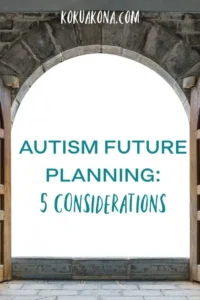Autism, a complex developmental disorder, affects millions of individuals around the world. But it’s not just about those diagnosed with autism; it’s about their families, their challenges, and how we, as a community, can provide vital support and understanding. In this blog, we delve into the world of autism, the challenges faced by parents, and how we can collectively make a difference.
Understanding Autism
Autism, or Autism Spectrum Disorder (ASD), is a broad range of conditions characterized by challenges with social skills, repetitive behaviors, and speech and nonverbal communication. It’s a spectrum because it affects each individual differently, with varying degrees of severity. Some individuals with autism may excel in certain areas while facing significant difficulties in others.
The Challenges Faced by Parents
Parents of children with autism face unique and often overwhelming challenges. These challenges can include:
- Diagnosis and Early Intervention: The journey often begins with the diagnosis, which can be emotionally taxing for parents. Early intervention is crucial, but it can also be a maze of appointments and evaluations.

- Financial Burden: Autism-related therapies, medical care, and specialized education can be expensive, placing
- a significant financial burden on families.
- Stigma and Isolation: Parents may encounter social stigma and isolation. It can be challenging to explain their child’s behavior to others who may not understand autism.
- Daily Struggles: The day-to-day life of a parent with an autistic child can be physically and emotionally draining, dealing with meltdowns, communication diffi
- culties, and unique needs.
- Planning for the Future: Parents of autistic children often worry about their child’s future, including their long-term care and independence.
How Can We Help?
- Raise Awareness: The first step in making a difference is raising awareness. Communities, schools, and individuals can benefit from understanding autism better.
- Support Parenting Groups: Parenting groups for those with autistic children offer emotiona
 l support and practical advice. Consider supporting or volunteering with these groups.
l support and practical advice. Consider supporting or volunteering with these groups.- Inclusive Education: Advocate for inclusive education in schools to ensure that children with autism have access to quality education that meets their unique needs.
- Workplace Inclusion: Encourage workplaces to create an inclusive environment, providing opportunities for parents of autistic children to balance work and caregiving responsibilities.
- Respite Care: Offer respite care to give parents a much-needed break. Respite care programs can provide temporary relief to parents.
- Advocate for Policies: Support policies and legislation that improve access to healthcare, therapy, and other essential services for individuals with
 autism.
autism. - Empathetic Understanding: Show empathy and understanding to families dealing with autism. A kind word or gesture can make a world of difference.
- Volunteer for Non-Profits: Volunteering for non-profit organizations focused on autism can be vital. Your time and effort can make a significant impact on the lives of these families.
Conclusion
Autism affects not only those diagnosed but their families as well. The challenges parents face are immense, but with awareness and support, we can make their journey a bit easier. By understanding the unique needs of those with autism and their families, we can create a more inclusive and compassionate society. Together, we can make a difference and empower families to thrive despite the challenges they face. Volunteering for non-profit organizations is a vital way to contribute to this cause.




 l support and practical advice. Consider supporting or volunteering with these groups.
l support and practical advice. Consider supporting or volunteering with these groups. autism.
autism.

